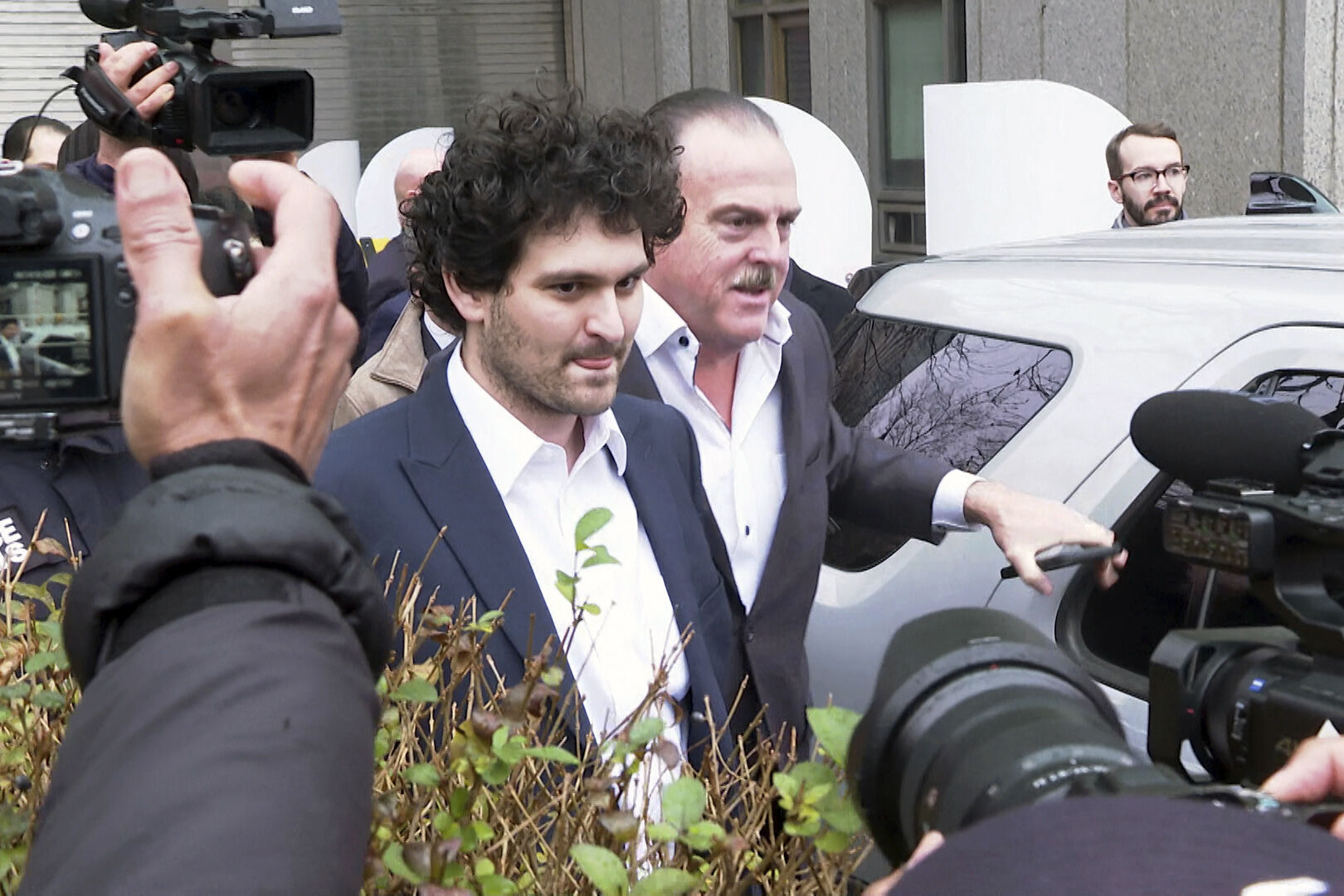NEW YORK — A judge agreed to a request by prosecutors to keep it secret that two of Sam Bankman-Fried’s executive associates had turned against him so that the cryptocurrency entrepreneur would agree not to fight extradition from the Bahamas to the United States, according to transcripts of plea deals made public Friday.
U.S. District Judge Ronnie Abrams said during plea proceedings Monday in Manhattan that transcripts of the pleas could remain sealed until Bankman-Fried reached New York.
U.S. Attorney Damian Williams announced the guilty pleas and cooperation deals by Carolyn Ellison, 28, and Gary Wang, 29, while Bankman-Fried flew to a Westchester County airport late Wednesday in the custody of FBI agents.
Bankman-Fried, 30, appeared in Manhattan federal court on Thursday, when he was released on $250 million bail after an electronic monitoring bracelet was attached to him and he agreed to live with his parents in Palo Alto, Calif., while awaiting trial.
Ellison, the former chief executive of Bankman-Fried’s cryptocurrency hedge fund trading firm, Alameda Research, and Wang, a founder of FTX, the crypto exchange, agreed to testify against Bankman-Fried in connection with their pleas.
Assistant U.S. Attorney Danielle Sassoon told Abrams during Ellison’s plea Monday afternoon that prosecutors had expected Bankman-Fried to consent to extradition on Monday before there were “some hiccups in the Bahamian courtroom.”
“We’re still expecting extradition soon, but given that he has not yet entered his consent, we think it could potentially thwart our law enforcement objectives to extradite him if Ms. Ellison’s cooperation were disclosed at this time,” Sassoon told Abrams.
The judge got assurance from Ellison’s defense lawyer that there was no objection to the request before granting it.
“Exposure of cooperation could hinder law enforcement officials’ ability to continue the ongoing investigation and, in addition, may affect Mr. Bankman-Fried’s decision to waive extradition in this case,” Abrams said.
Criminal charges lodged against Bankman-Fried were revealed on Dec. 13, when prosecutors said the entrepreneur began defrauding customers and investors after FTX’s 2019 founding by illegally diverting money to cover expenses, debts and risky trades at Alameda, which was created in 2017.
At a news conference, Williams called the crimes that enabled Bankman-Fried to make lavish real estate purchases and large political donations “one of the biggest frauds in American history.”
At her plea, Ellison said since FTX and Alameda collapsed in November, she has “worked hard to assist with the recovery of assets for the benefit of customers and to cooperate with the government’s investigation.”
“I am truly sorry for what I did. I knew that it was wrong. And I want to apologize for my actions to the affected customers of FTX, lenders to Alameda and investors in FTX,” she said.
Ellison said she was aware from 2019 through 2022 that Alameda was given access to a borrowing facility at FTX.com that allowed Alameda to maintain negative balances in various currencies.
She said the practical effects of the arrangement was that Alameda had access to an unlimited line of credit without being required to post collateral and without owing interest on negative balances or being subject to margin calls or liquidation protocols.
Ellison said she knew that if Alameda’s FTX accounts had significant negative balances in any currency, it meant that Alameda was borrowing funds that FTX’s customers had deposited into the exchange.
“While I was co-CEO and then CEO, I understood that Alameda had made numerous large illiquid venture investments and had lent money to Mr. Bankman-Fried and other FTX executives,” she said.
Ellison said she understood that Alameda had financed the investments with short-term and open-term loans worth several billion dollars from external lenders in the cryptocurrency industry.
She said that when many of those loans were recalled by lenders in June, she agreed with others to borrow several billion dollars from FTX to repay them.
“I understood that FTX would need to use customer funds to finance its loans to Alameda,” she said. “I also understood that many FTX customers invested in crypto derivatives and that most FTX customers did not expect that FTX would lend out their digital asset holdings and … deposits to Alameda in this fashion.”
From July to October, Ellison said, she agreed with Bankman-Fried and others to provide misleading financial statements to Alameda’s lenders, including quarterly balance sheets that concealed the extent of Alameda’s borrowing and the billions of dollars in loans that Alameda had made to FTX executives and related parties.
She said she knew that FTX had not disclosed to its investors that Alameda could borrow unlimited amounts from FTX, putting their assets at risk.
“I agreed with Mr. Bankman-Fried and others not to publicly disclose the true nature of the relationship between Alameda and FTX, including Alameda’s credit arrangement,” Ellison said.
During his plea earlier Monday, Wang said that between 2019 and 2022 while working at FTX, he was “directed to and agreed to make certain changes to the platform’s code” to give Alameda special privileges.
“I did so knowing that others were representing to investors and customers that Alameda had no such special privileges and people were likely investing in and using FTX based in part on those misrepresentations,” he said. “I knew what I was doing was wrong.”


